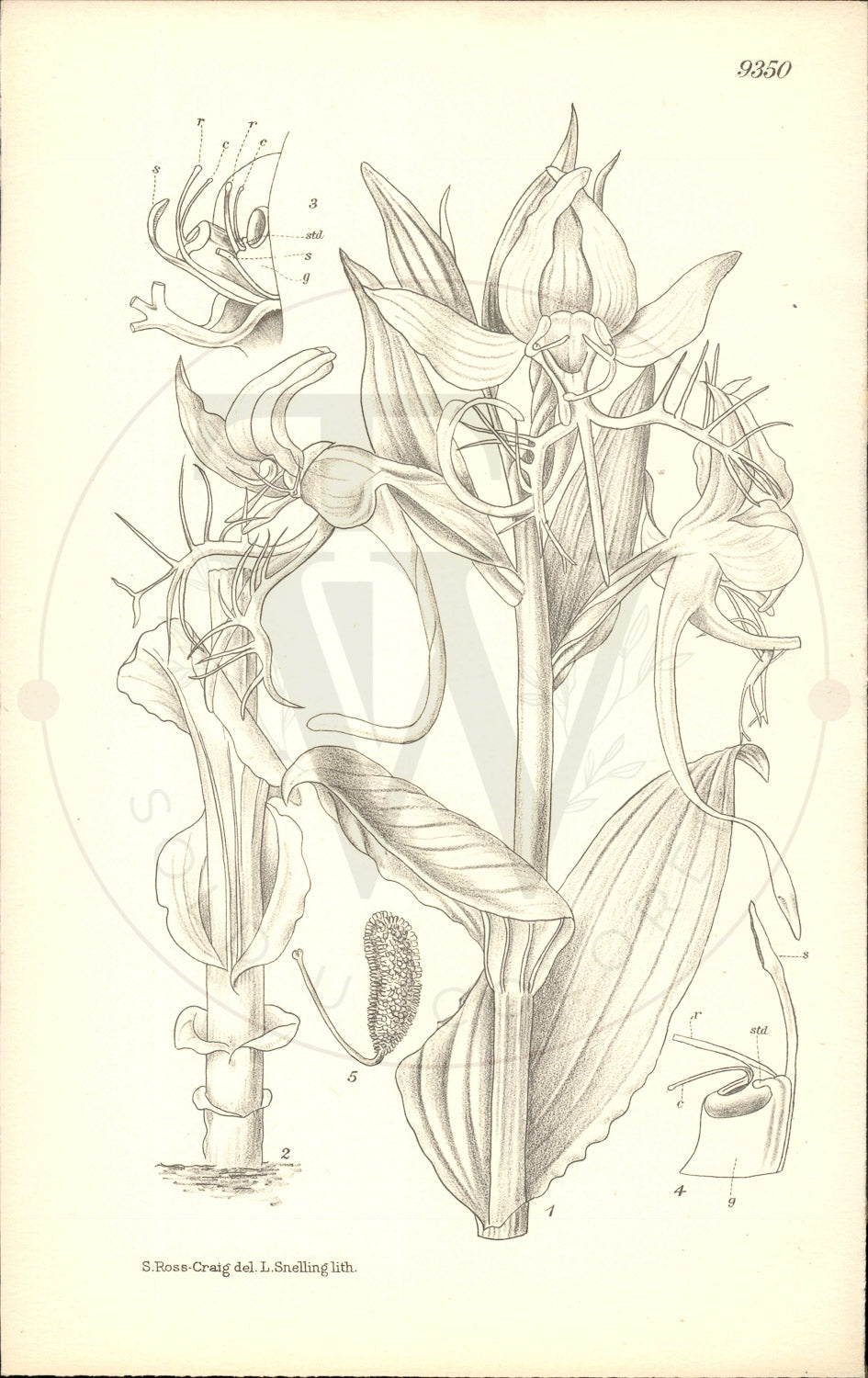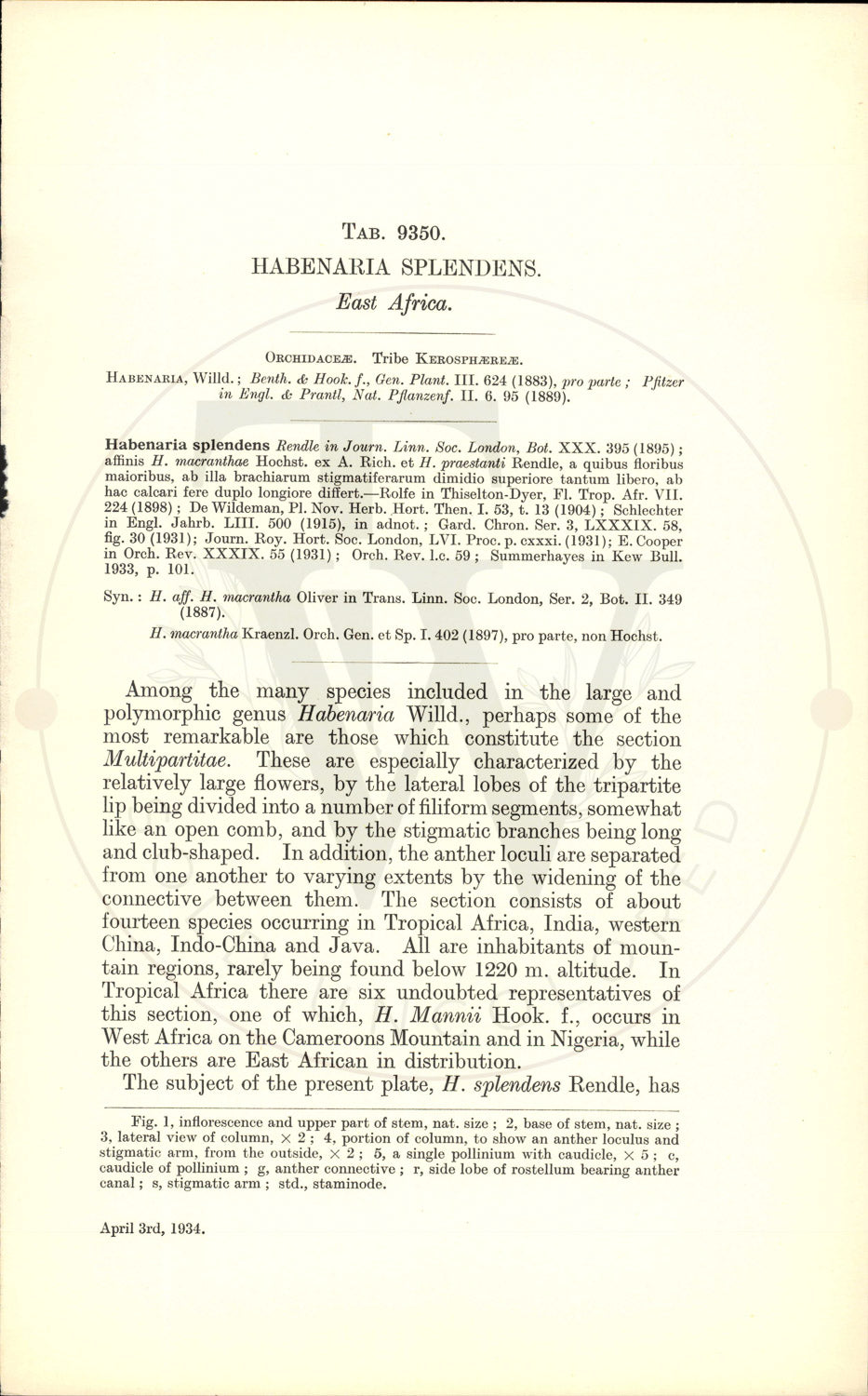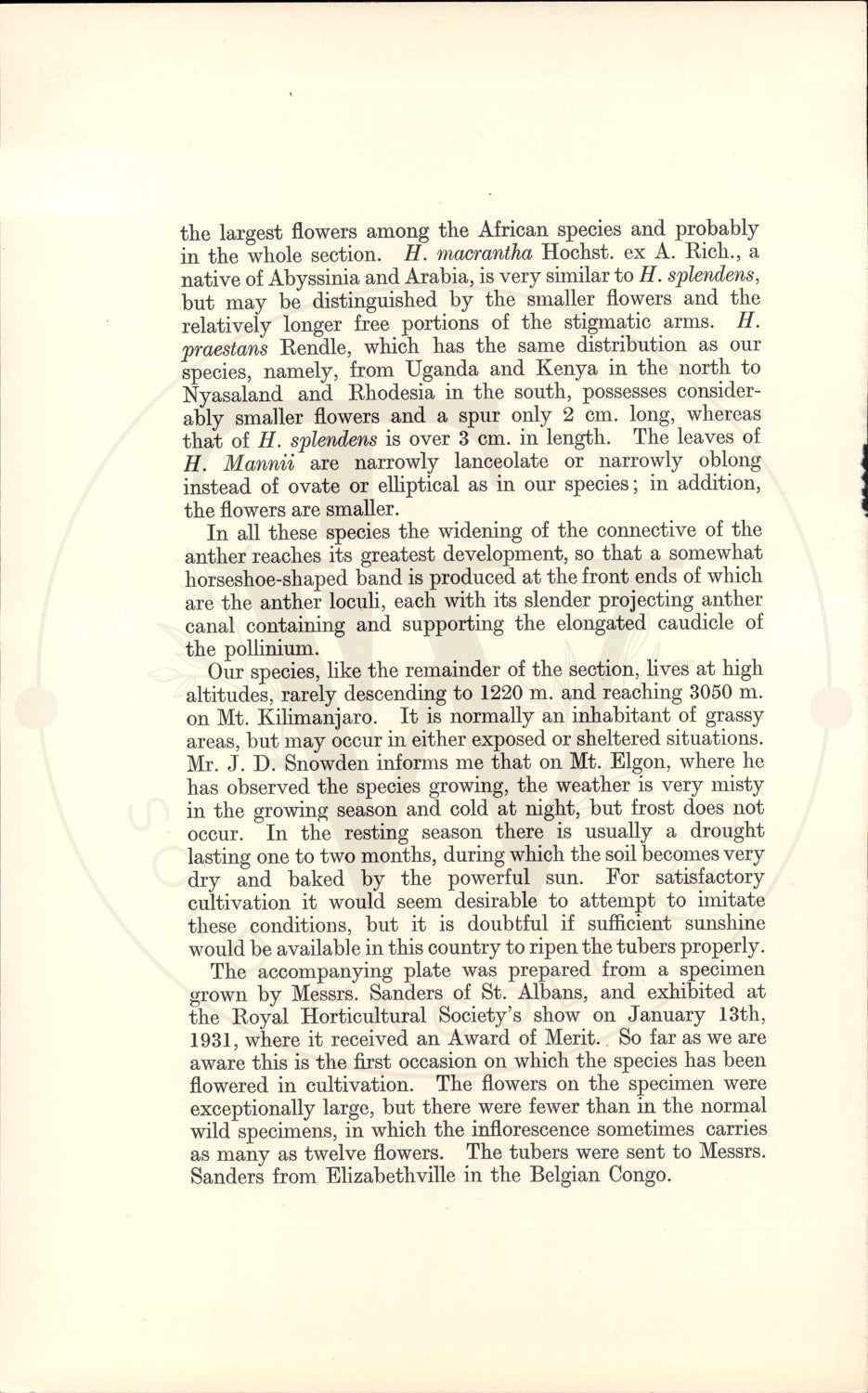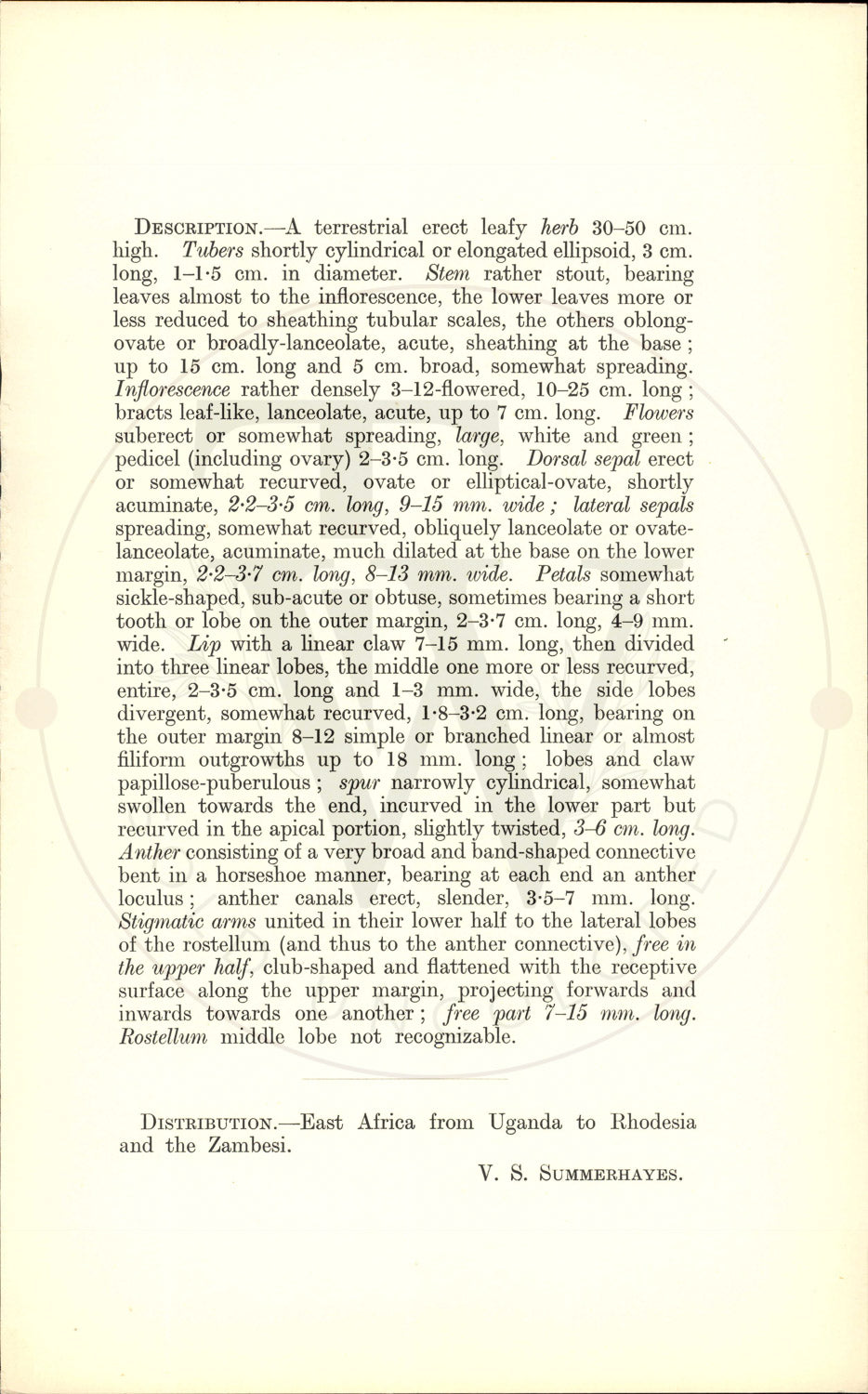Curtis Botanical Magazine
Plate 9350 - Habenaria splendens
Plate 9350 - Habenaria splendens
Couldn't load pickup availability
Curtis's Botanical Magazine - Plate 9350
Habenaria splendens
Family: ORCHIDACEAE • Tribe: KEROSPHAEREAE • Native Region: East Africa • Publication Date: April 3rd, 1934
Distribution: India; Central Nepal. • Tab Author: G. TAYLOR.
Botanical Description
Among the many species included in the large and polymorphic genus Habenaria Willd., perhaps some of the most remarkable are those which constitute the section Multipartitae. These are especially characterized by the relatively large flowers, by the lateral lobes of the tripartite lip being divided into a number of filiform segments, somewhat like an open comb, and by the stigmatic branches being long and club-shaped. In addition, the anther loculi are separated from one another to varying extents by the widening of the connective between them. The section consists of about fourteen species occurring in Tropical Africa, India, western China, Indo-China and Java. All are inhabitants of moun- tain regions, rarely being found below 1220 m. altitude. In Tropical Africa there are six undoubted representatives of this section, one of which, H. Mannii Hook. f., occurs in West Africa on the Cameroons Mountain and in Nigeria, while the others are East African in distribution. The subject of the present plate, H. splendens Rendle, has.
Synonyms
Syn.: H. aff. H. macrantha Oliver in Trans. Linn. Soc. London, Ser. 2, Bot. II. 349 (1887). H. macrantha Kraenzl. Orch. Gen. et Sp. I. 402 (1897), pro parte, non Hochst. Among the many species included in the large and polymorphic genus Habenaria Willd., perhaps some of the
About This Print
Original black and white uncolored botanical print from Curtis's Botanical Magazine (established 1787). This 9000s series print is from unissued publisher stock, never hand-colored, representing the authentic plate as it appeared in the magazine. Edited by Sir Arthur William Hill for The Royal Horticultural Society, London.
Share









